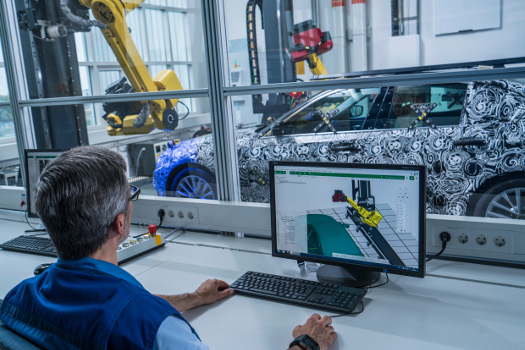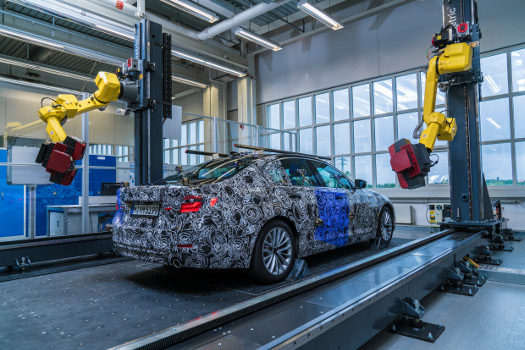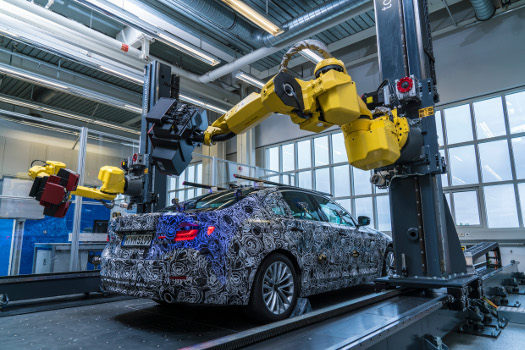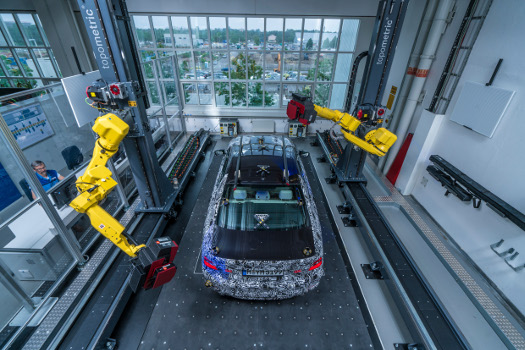 |
| August 09, 2016 | Volume 12 Issue 30 |
Designfax weekly eMagazine
Archives
Partners
Manufacturing Center
Product Spotlight
Modern Applications News
Metalworking Ideas For
Today's Job Shops
Tooling and Production
Strategies for large
metalworking plants
Wheels:
BMW is first to install automated 3D-scanner cell

The BMW Group is the first automobile manufacturer to introduce a fully automated, optical measuring cell. The unique system, which is being piloted at its plant in Munich, Germany, features freely moving robot arms that use sensors to create a three-dimensional image of the entire vehicle and generate a 3D-data model from the data captured. Scanning accuracy is less than 100 Ám. This allows barely visible deviations to be identified at an early stage.
The optical measuring cell is deployed at the interface between development and series production. It is part of the BMW Group's digitalization strategy for production and supports the high quality standards for producing premium vehicles. The next generation of the BMW 5 Series Sedan will be the first to benefit from this new technology.


"Lengthy individual measurements and data collation are no longer needed," says Eduard Obst, head of Geometric Analysis, Measuring Technology and Cubing, Total Vehicle, BMW, "saving time and enhancing quality at the start of series production."
In the setup, a robot arm on rails is mounted on each longitudinal axis of the optical measuring cell and moves freely as it maps the vehicle in complete space. Occupying a relatively small area, this configuration allows two small, flexible robots to be used in parallel in an optimum working range. Compared with previous processes, in which robots use a single sensor to record one side of the vehicle after the other, measurements now take only around half the time and are completed within just a few days.

The robots are fitted with two sensors that record reference points and then capture individual surface areas of approximately 80 cm2 (31 in.2) each. These are combined to form a scan of the entire vehicle. Analysis of the data quickly reveals any deviations, allowing technical integration specialists in the production division to take appropriate action early on.
An added bonus is that 3D vehicle scanning can be fully automated and performed at off-peak hours or at night, so the measuring cell can be utilized to full capacity. With results delivered promptly, update cycles are shorter or no longer needed. The measurement data and analysis findings are shared online within the production network and also made available to the plant responsible for series production to assist with their preparations.
The fully automated optical measuring cell is gaining increasing importance within the BMW Group. This technology has been successfully used in toolmaking in Munich since 2015 for complete measurement of individual sheet-metal parts, as well as tool inspection.
The BMW Group is also exploring using automated optical measurement at its automobile plants as part of quality control in the manufacturing process.
Source: BMW Group
Published August 2016
Rate this article
View our terms of use and privacy policy
